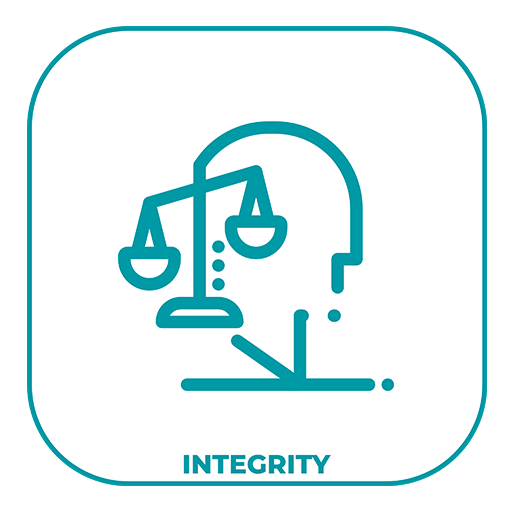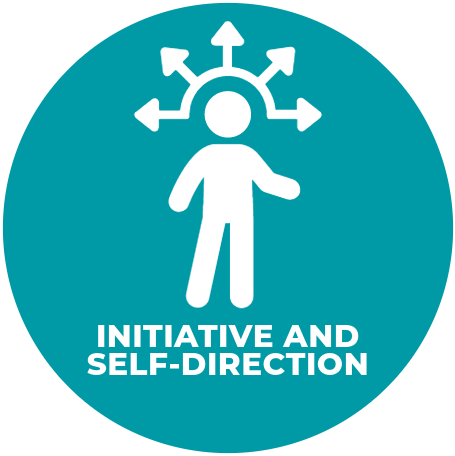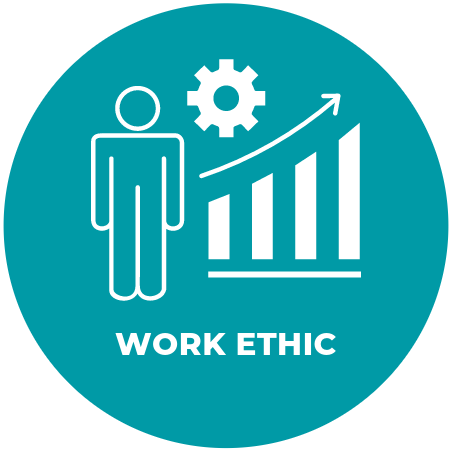“Be more concerned with your character than your reputation, because your character is what you really are, while your reputation is merely what others think you are.”
John Wooden
- Integrity
- Honesty: Being truthful and transparent in all communications and actions.
- Consistency: Demonstrating reliability and steadfastness in principles and behavior.
- Accountability: Taking responsibility for one’s actions, whether positive or negative.
- Ethical Decision-Making: Making choices based on moral principles and ethical standards.
- Trustworthiness: Building and maintaining trust through actions and words.
- Respect for Others: Treating others with consideration, empathy, and dignity.
- Courage: Having the bravery to do what is right, even in challenging situations.
- Openness to Feedback: Welcoming constructive criticism and being willing to learn and improve.
- Dependability: Fulfilling commitments and obligations consistently.
- Self-Awareness: Understanding one’s values, strengths, and areas for improvement.
- Fairness: Treating all individuals equitably and justly.
- Humility: Acknowledging one’s limitations and being open to learning from others and recognizing one’s own fallibility and being open to learning and growth.
- Empathy: Understanding and considering the perspectives and feelings of others.
- Patience: Remaining composed and composed, especially in challenging situations.
- Loyalty: Staying true to one’s commitments, values, and relationships.
- Introspection:Reflecting on personal actions and decisions to ensure alignment with values.
- Authenticity: Being genuine and true to oneself, without pretense or facade.
- Conflict Resolution: Handling disagreements and conflicts with fairness and constructive communication.
- Civic Responsibility: Contributing positively to society and upholding civic duties.
- Cultural Sensitivity: Respecting and valuing diversity, recognizing and avoiding biases.
- Gratitude: Acknowledging and appreciating the contributions of others.
- Principled Leadership: Leading with integrity and ethical principles, inspiring others to do the same.
- Self-Discipline: Exercising control over one’s actions and decisions to align with values.
- Compassion: Demonstrating kindness and understanding toward others, especially in challenging circumstances.
Gen Z and Millennials Who Demonstrate Integrity Skills
“Real integrity is doing the right thing, knowing that nobody’s going to know whether you did it or not.”
Oprah Winfrey

Royce Mann
Royce Mann authentically advocates for social justice issues such as racial inequality and climate change. Using his voice and platform to address challenging topics demonstrates integrity, as he stands up for what he believes is right while reflecting a commitment to inclusivity, understanding diverse perspectives, and advocating for a more equitable and compassionate world. After taking a course called “Class, Race, and Gender” as a 14-year-old eighth grader, his inspired slam poem “White Boy Privilege” went viral in 2016. In high school, he became involved in student government, started a chapter of Amnesty International, and has had the opportunity to perform and speak around the country, including at the inaugural Obama Foundation Summit, the NEXUS Leadership Summit, the National Youth Leadership Council, Points of Light Foundation, GLAAD Annual Awards, and the True Colors Conference. In 2021, Mann ran for a seat on the Atlanta Board of Education. Although he did not win, he continued advocating for youth voter turnout at local elections. Royce Mann demonstrates integrity by being transparent and open about his perspectives and the issues he cares about.

Malala Yousafzai
Malala Yousafzai’s life and work exemplify integrity through her commitment to education, social justice, and humanitarian causes. Malala’s courage in advocating for girls’ education, even after surviving a Taliban assassination attempt, showcases her unwavering commitment to her principles. Her willingness to speak openly about her life, challenges, and beliefs contributes to building trust and credibility, which are key components of integrity. Malala actively engages in broader social justice issues, including advocating for the rights of refugees and highlighting the importance of gender equality rooted in empathy and compassion for those facing adversity, especially girls denied educational opportunities. Her respect for different cultural contexts and her ability to collaborate with individuals from various backgrounds demonstrate a commitment to inclusivity and understanding. Her actions align with her principles, and she continues to be a powerful advocate for positive change on a global scale. Here is an interview Malala Yousafzai did with the Today show.

Name
Name, description

